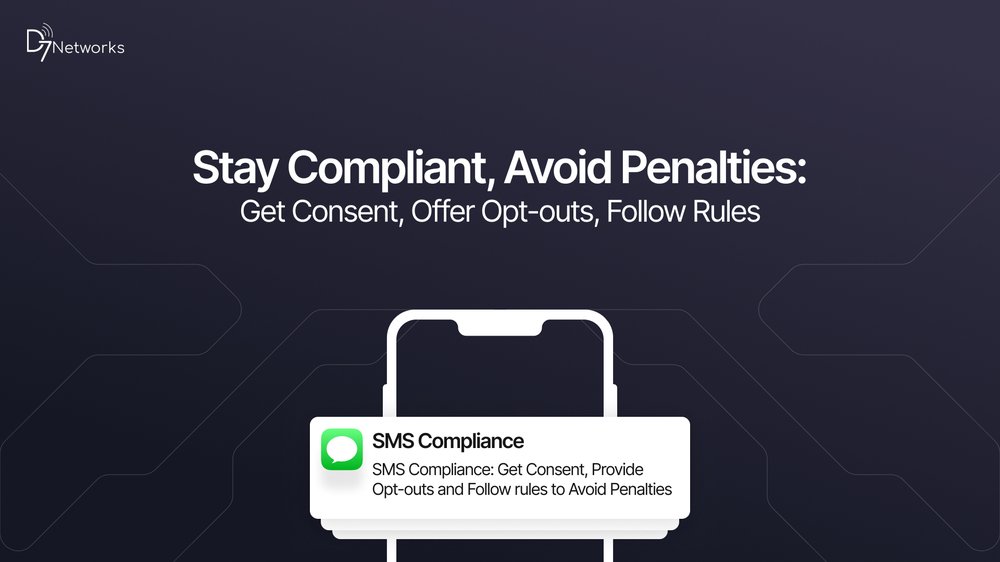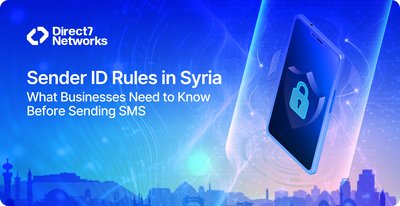
Mastering Short Message Service (SMS) Compliance for Businesses
Explore the comprehensive guide to SMS compliance for businesses.
In today's fast-paced world, businesses are increasingly utilizing Short Message Service (SMS) as a communication tool. While SMS text messaging offers convenience and immediacy, maintaining professionalism is essential. This guide will help you master SMS etiquette for effective business communication. By following these guidelines, you can leverage SMS to enhance communication and build stronger relationships with clients and colleagues.
Why SMS Compliance is Important for Businesses
Short Message Service (SMS) gateway is a powerful communication tool for businesses, but it comes with important responsibilities. SMS compliance ensures that you are using this channel responsibly and ethically, and here's why it's crucial:
- Consumer Trust: Complying with SMS regulations protects consumers from spam and unwanted messages. This builds trust and fosters positive relationships with your audience, increasing the likelihood of engagement.
- Avoiding Penalties: Breaching SMS compliance rules can result in hefty fines from regulatory bodies. Staying compliant saves your business money and prevents legal complications.
- Maintaining Reputation: Spammy or harassing texts can damage your brand image. Compliance ensures that your messages are professional and welcome rather than intrusive.
- Maximizing Engagement: Compliant messages are more likely to be delivered and opened. This allows you to effectively reach your target audience and achieve your communication goals.
Regulatory Bodies for SMS Compliance
When using Short Message Service (SMS) for business, it is important to be mindful of the regulations set by different governing bodies. Each country has its own specific regulatory bodies for SMS compliance, such as the TCPA, FCC, TRA, and TRAI.
Best Practices for SMS Compliance
Navigating SMS compliance regulations can feel overwhelming, but following these key best practices will ensure that your SMS interactions are compliant and effective:
- Register Your Verified Number: Remember to register your verified business phone number to gain access to the SMS service.
- Permission is Paramount (Opt-In): Always obtain clear and verifiable consent before sending any SMS messages. Common methods include web forms, checkboxes during signups, or keyword opt-ins.
- Craft Clear and Easy Opt-Out Mechanisms: Every SMS message you send must include a straightforward way for recipients to opt-out. Popular methods include replying with "STOP" to a specific number or providing an unsubscribe link. Ensure that opt-out requests are processed promptly, typically within 3 business days.
- Maintain Accurate and Up-to-date Lists: Regularly check your contact lists against carrier deactivation files to remove invalid or recycled numbers. Avoid purchasing or renting lists as they may contain unverified contacts who haven't opted in.
- Respect Time Zones and Message Frequency: Avoid sending messages outside of reasonable business hours (typically 8 AM to 9 PM in the recipient's time zone). Do not bombard recipients with excessive texts. Aim for a frequency that provides value without becoming intrusive.
- Keep it Clean and Safe: Avoid sending spammy messages, harassing, abusive, fraudulent, or threatening messages. Maintain a professional tone and focus on delivering valuable information or promotions.
- Stay Informed: Stay updated on changes to SMS regulations, such as the TCPA, CTIA guidelines, or relevant regulations in your country.
- Integrate a Secure Text Message Platform: Use a secure SMS portal with an API for easy integration with your existing platforms. D7 Messaging services offer a reliable, cost-effective, and simple SMS API integration solution.
By adhering to these best practices, your business can effectively use Short Message Service (SMS) to communicate responsibly and build stronger connections with your audience.
Happy Messaging.




